Bringing free health services to underserved communities
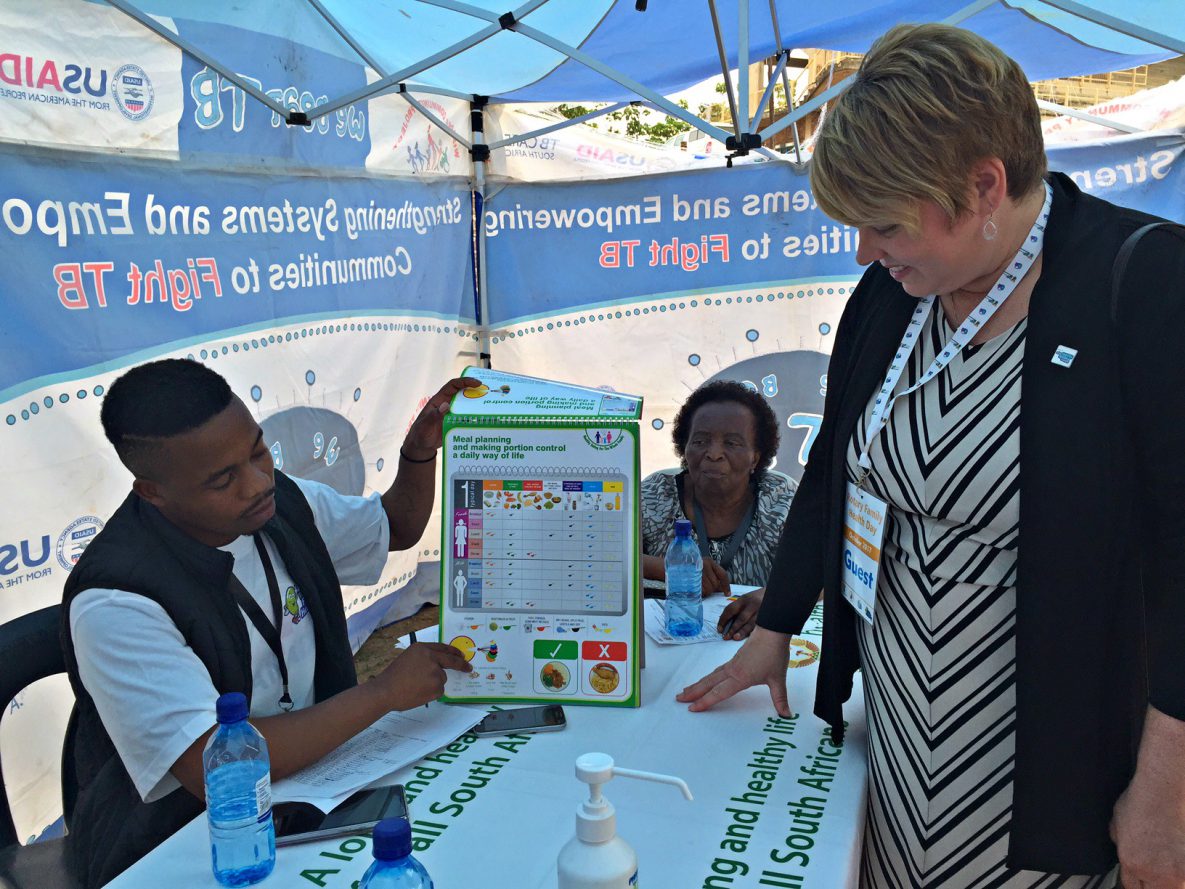
Free Health Services Tent
The rain could not stop the residents of Thulamahashe in Mpumalanga province from attending the launch of the annual Rotary Family Health Days (RFHDs) on October 3, 2017. For this semi-rural community, this was an opportunity to access different health services right at their doorsteps.
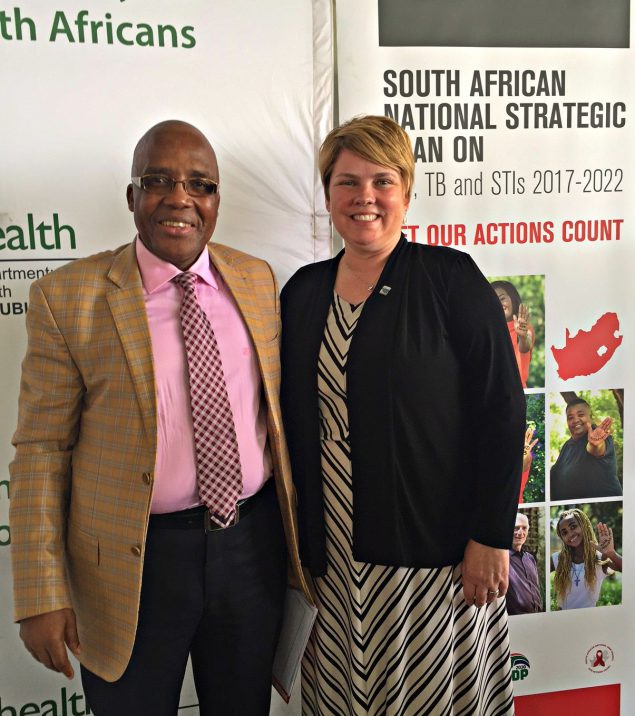
Health Minister Dr. Aaron Motsoaledi and CDC South Africa Country Director, Dr. Amy Herman-Roloff, sharing a moment at the Rotary Family Health Days launch.
The RFHDs is a three-day, multi-partner outreach campaign initiated by the Rotarians for Family Health and AIDS Prevention (RFHA). During the campaign, the Rotary Family Health, in partnership with the National Department of Health (NDoH), Centers for Disease Control and Prevention (CDC), USAID, and other partners bring free, comprehensive, and holistic health care service to people in disadvantaged communities in both rural and urban areas across South Africa.
This year’s national campaign took place on October 3-5, and was officially launched by Health Minister, Dr. Aaron Motsoaledi, at Thulamashe stadium. Dr. Motsoaledi said he was happy that RFHA continued to partner with the South African government in bringing health services to the people. He called on the community to test for HIV, immunize children, and screen for TB and noncommunicable diseases such as diabetes and hypertension.
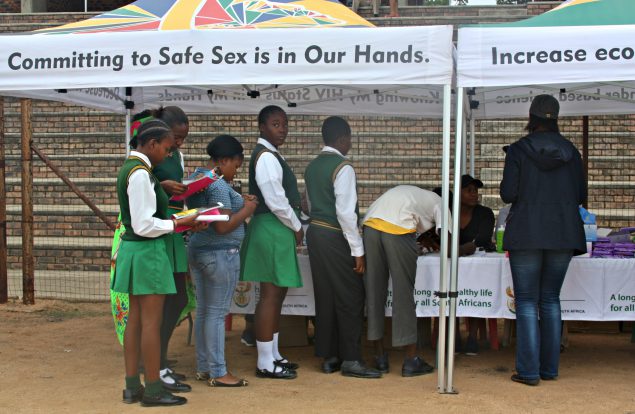
Young girls came out in numbers to attend the RFHDs launch; here they are seen signing up to be tested for HIV.
“Don’t miss the opportunity to be protected against these formidable diseases. Getting tested and screened and taking the advice of health workers on how to be healthy are vital to a successful country,” he said.
Dr. Amy Herman-Roloff, CDC South Africa’s Country Director, was also among the keynote speakers at the launch, and she spoke to the importance of partnering with RFHA and NDoH on events like these.
She said: “Events like these are not just about numbers and targets, but they are about bringing people together and ensuring that everyone in the community has access to quality screening and linkage to health care.”
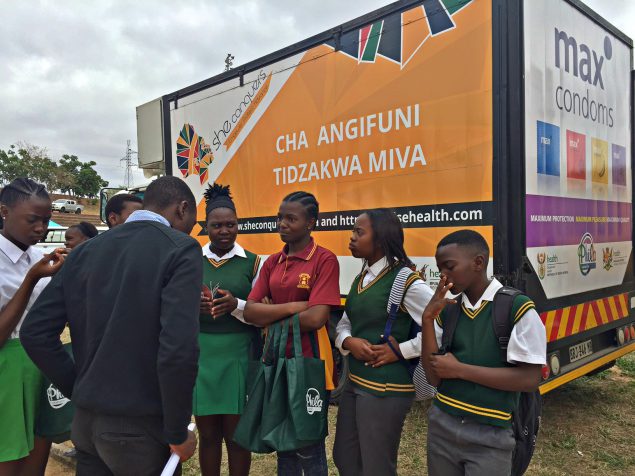
A lay counselor having an informal talk with young girls in front of the She Conquers truck.
“This is where we reach adolescent girls and young women with messages of HIV prevention and empowerment. It is also where we reach men about gender-based violence. It is very important that we use the holistic approach that these days offer and not only focus on HIV, but on TB, diabetes, vaccinations, and high blood pressure as well. All these diseases impact the economic strength of the community,” Herman-Roloff said.
CDC South Africa has worked closely with RFHA since its launch five years ago as a consulting and advisory body in the USA as well as being the implementing and support partner for the RFHDs in Africa and South Africa.
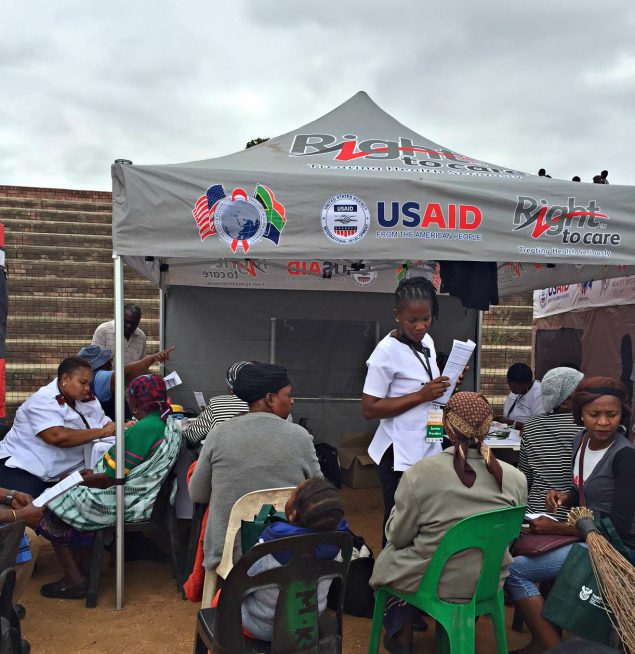
The gloomy weather could not deter the community from taking advantage of free health services.
Sue Paget, Programme Director for Southern Africa, acknowledged the important role played by partners like NDoH and U.S. government agencies. She said the Rotary Family Health Days 2017 was a major success and “We couldn’t have done it without the support of dedicated partners and volunteers.”
The South African National Aids Council (SANAC) was also present at the launch to offer its support. Represented by Steve Letsike, SANAC Civil Society Forum Chairperson and SANAC Deputy Chairperson, the organization said outreach campaigns like these are a perfect opportunity for people to know their HIV status.
“These services have been brought to you for free, use them effectively. Those who do not know if they are living with HIV, get tested today and know your status. Take responsibility because, this life is ours and not somebody else’s,” Letsike added.